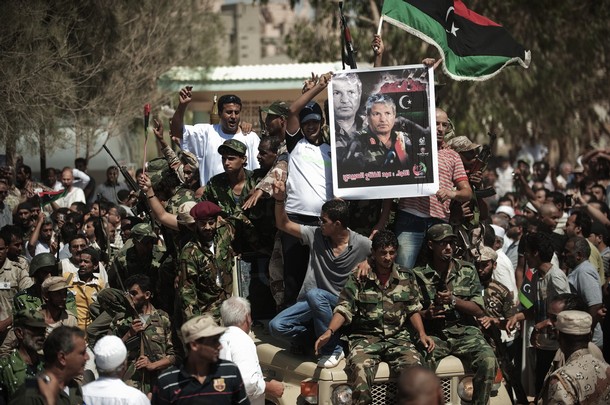
From the Editors of the Guardian: Death of rebels’ top general Abdel Fatah Younis shows the prospects of a negotiated settlement are farther away than ever . . .
On Wednesday William Hague said that Britain’s decision to recognise the National Transitional Council (NTC) as the sole governmental authority in Libya reflected the council’s increasing "legitimacy, competence and success" in reaching out to Libyans across the country. On Thursday the rebels’ top general Abdel Fatah Younis was shot dead, having been summoned, his clansmen claimed, for questioning. The suspicion was that his family might still have ties with Muammar Gaddafi. The press conference to announce his death ended in gunfire from enraged members of Younis’s tribe, the Obeidi. One of the largest tribes in eastern Libya, its members now believe the rebel leadership had some role in the general’s death.
News of Britain’s diplomatic recognition spread like wildfire through the besieged city of Misrata, which had suspected the UK and France of toying with the idea of a negotiated settlement and partition. But here, too, divisions are manifest. The rebels from Misrata are reluctant to fight alongside their brothers from Benghazi. The NTC leadership is rooted to the spot in Benghazi, and the units they send to the besieged city are kept separate from local formations who refuse to adopt either the insignia or the orders. Within 24 hours Mr Hague’s words wafted over the desert as if they were uttered from a different planet. The rebels have problems more pressing than reaching out to Libyans in Tripoli. The first test they apparently have to pass is to reach out to each other. . . . (photo: Getty)
Image: getty%207%2030%2011%20Abdel%20Fatah%20Younes%20funeral.jpg
